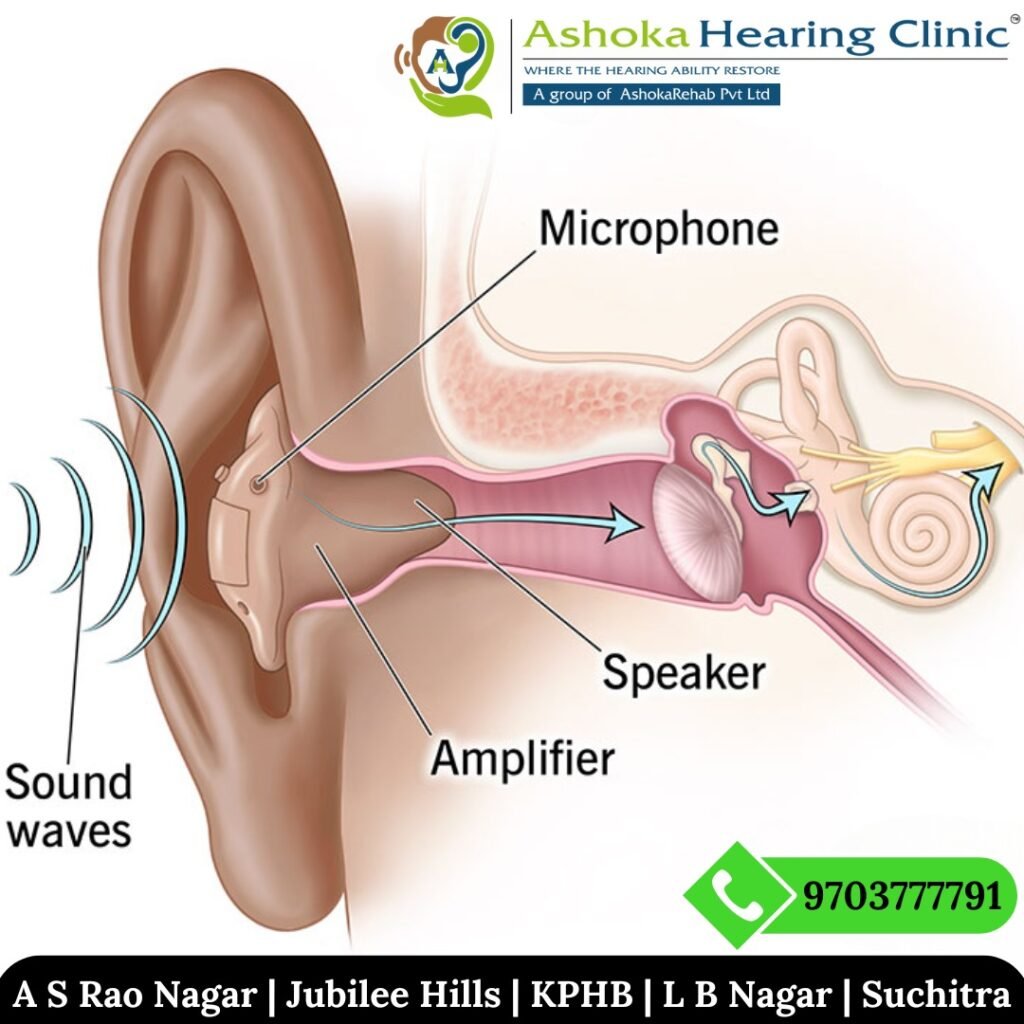Does Hearing Aid Improve Hearing?

Hearing loss is a common condition that affects millions of people worldwide. For many, the question arises: can a hearing aid truly improve hearing? The answer is multifaceted, encompassing technological advancements, the nature of hearing loss and individual adaptation. This blog explores how hearing aids work, their benefits, limitations and the overall impact they have on hearing improvement.
Understanding Hearing Loss
Hearing loss can be classified into three main types: conductive, sensorineural and mixed. Conductive hearing loss involves problems with the ear canal, eardrum, or middle ear and its little bones (the malleus, incus, and stapes). Sensorineural hearing loss involves damage to the inner ear (cochlea) or the nerve pathways from the inner ear to the brain. Mixed hearing loss is a combination of both.
Each type of hearing loss has different causes and implications for treatment. Hearing aids are most commonly used to address sensorineural hearing loss, which can result from aging, exposure to loud noise, illness, or injury.
How Hearing Aids Work?
A hearing aid is a small electronic device that you wear in or behind your ear. It makes some sounds louder so that a person with hearing loss can listen, communicate, and participate more fully in daily activities. A hearing aid has three basic parts: a microphone, amplifier and speaker.

- Microphone: Captures sound waves and converts them into electrical signals.
- Amplifier: Increases the strength of the electrical signals.
- Speaker: Converts the amplified electrical signals back into sound and delivers them to the ear.
Modern hearing aids are highly sophisticated, often featuring digital technology that allows for more precise sound amplification and background noise reduction.
Benefits of Hearing Aids
Improved Communication: Hearing aids can significantly enhance the ability to communicate by making speech sounds clearer. This is particularly important in social settings, where background noise can make conversation difficult.
Better Quality of Life: Many users report an improved quality of life, experiencing less social isolation, depression, and anxiety. Being able to hear better can restore a sense of normalcy and confidence.
Cognitive Health: There is growing evidence suggesting that hearing aids can help in maintaining cognitive functions. Untreated hearing loss has been linked to an increased risk of dementia. By improving hearing, hearing aids may help in keeping the brain more active.
Safety and Awareness: Improved hearing can enhance safety by making it easier to hear alarms, sirens, and other warning signals. It also increases environmental awareness, which is crucial for personal safety.
Fill the below form to get the best hearing aids in Hyderabad
Limitations of Hearing Aids
Adaptation Period: Adjusting to hearing aids takes time. The brain needs to relearn how to process sounds, and this can take several weeks to months. Initially, sounds might seem overly loud or unnatural.
Not a Cure: Hearing aids do not cure hearing loss. They amplify sounds to make them more accessible but cannot restore normal hearing or halt the progression of hearing loss.
Background Noise: Despite advancements, background noise can still be problematic. Modern hearing aids have features to reduce noise, but they are not perfect, and some environments might still pose challenges.
Maintenance: Hearing aids require regular maintenance, including battery replacement, cleaning, and occasional repairs. This can be a hassle for some users.
The Impact of Technology
Advancements in hearing aid technology have revolutionized the way these devices improve hearing. Today’s hearing aids offer features such as:
Directional Microphones: These help in focusing on the sound you want to hear while reducing background noise.
Rechargeable Batteries: Many modern hearing aids come with rechargeable batteries, which are more convenient and environmentally friendly.
Wireless Connectivity: Hearing aids can connect to smartphones, TVs, and other devices, allowing users to stream audio directly to their hearing aids.
Artificial Intelligence: Some hearing aids use AI to learn the user’s listening preferences and automatically adjust settings for different environments.
Individual Differences
The effectiveness of a hearing aid varies significantly among individuals. Factors influencing this include:
Type and Severity of Hearing Loss: The extent of hearing loss and whether it affects one or both ears can impact how well a hearing aid works.
Age and Cognitive Function: Older adults might take longer to adapt to hearing aids, and cognitive decline can affect how well they adjust.
Personal Preferences: Comfort and personal preference play a big role in hearing aid satisfaction. What works well for one person might not be suitable for another.
Quality of the Hearing Aid: Higher-quality hearing aids with advanced features typically provide better performance but are also more expensive.
Conclusion
Hearing aids can indeed improve hearing for many people, especially those with sensorineural hearing loss. They enhance communication, improve quality of life, and may even have cognitive benefits. However, they are not a cure for hearing loss and come with limitations, including an adjustment period and the need for ongoing maintenance.
Choosing the right hearing aid involves considering the type and severity of hearing loss, individual lifestyle, and preferences. Consulting with an audiologist is crucial to ensure the best fit and maximum benefit from the device.
As technology continues to evolve, hearing aids are becoming more effective and user-friendly, offering hope for those struggling with hearing loss. Whether for yourself or a loved one, exploring hearing aid options is a worthwhile step towards better hearing and a more fulfilling life.